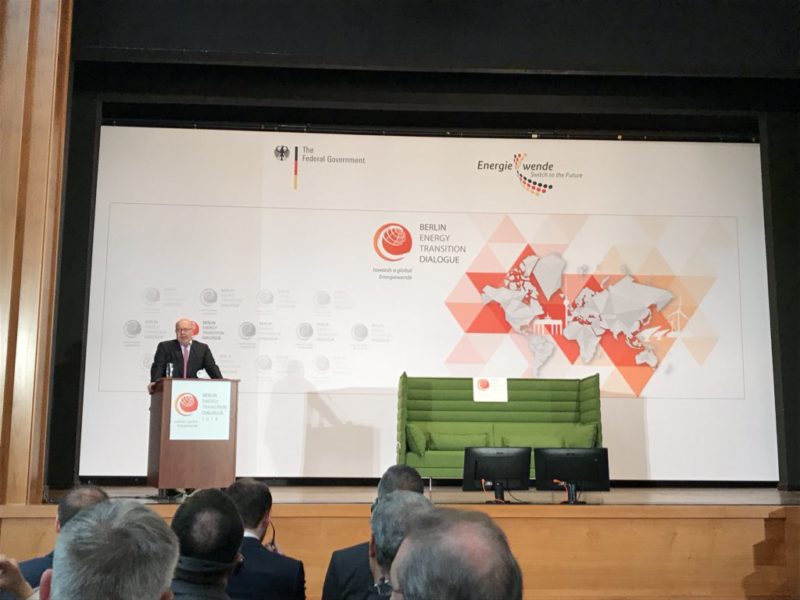Delegates from 95 countries comprising energy experts, government leaders, entrepreneurs and civil society have underlined the importance of deploying innovative solutions and technologies to fast-track the global energy transition.

This came out strongly as the Berlin Energy Transition Dialogue kicked off on Tuesday, April 17, 2018 in the German capital. In an opening address at the 4th edition of the dialogue, popularly dubbed Energiewende (energy transition in German), Heiko Maas, German Foreign Minister, reiterated the German determination to achieve the sustainable development goals through continuous and sustained transition to renewable energies which according to him, “are plentiful and almost everywhere.”
“We regard energy policy as a platform for cooperation, dialogue and international exchange. and the Berlin Energy Transition Dialogue is an ideal example of this,” he said. “The rigourous implementation of the Energiewende remains a major priority for us.”
Maas however warned that failure to implement the Paris Agreement and the 2030 agenda for sustainable development would leave the world in a very precarious situation with greater threats to stability and peace.
To the German Economic Affairs and Energy minister, Peter Altmaier, the 4th Berlin Energy Transition Dialogue is enough proof that that Energiewende has become a global phenomenon.
Energiewende, Altmaier said, “gives us the opportunity to produce more energy without polluting the environment as wind and solar power are more than ever before, cheaply available.”
According to the energy minister, “many countries in the world are radically transforming their energy supply but to achieve this fully, they have to overcome challenges similar to those being faced in Germany.”
“We therefore look forward to engaging in discussions with our guests and partners on innovative business models and technologically advanced solution which will accelerate the global energy transition and make it more economically and socially attractive for all us,” Altmaier added.
In a similar vein, the EU Vice President in charge of the commission on energy union, Maros Sefcovic, affirmed that Energiewende is no longer a German concept as it has been successfully exported across Europe. Sefcovic said that the fact that the top 10 jobs of today never existed 10 years ago underscores the need for evolving strategies that will create more access to energy, provide jobs and accelerate global energy transition.
Also in an address to the delegates, Lucia Bakulumpagi-Wamala, CEO of the start-up Bakulu Power in Uganda, highlighted the important role women can play in upscaling energy transition.
“If we want more women in the sector, we need to show them the opportunities they can leverage on to fast track the energy transition,” Lucia added.
Hosted by the government of Germany, the two-day Berlin Energy Transition Dialogue is at the core of the Berlin Energy Week holding from 16th to 20th April 2018 and incorporating the Start-Up Energy Transition Initiative Tech Festival, EventHorizon, Global Summit on Blockchain Technology in the energy sector, and the Urban Energy Forum.
This year’s dialogue, with the theme “Towards a global Energiewende,” brings together ministers and high-ranking delegations from 40 countries and around 2,000 delegates from 95 countries.
The delegates are expected to develop strategies for the intelligent transformation of the global energy system, the transport sector and the heating supply.
Courtesy: PAMACC News Agency
